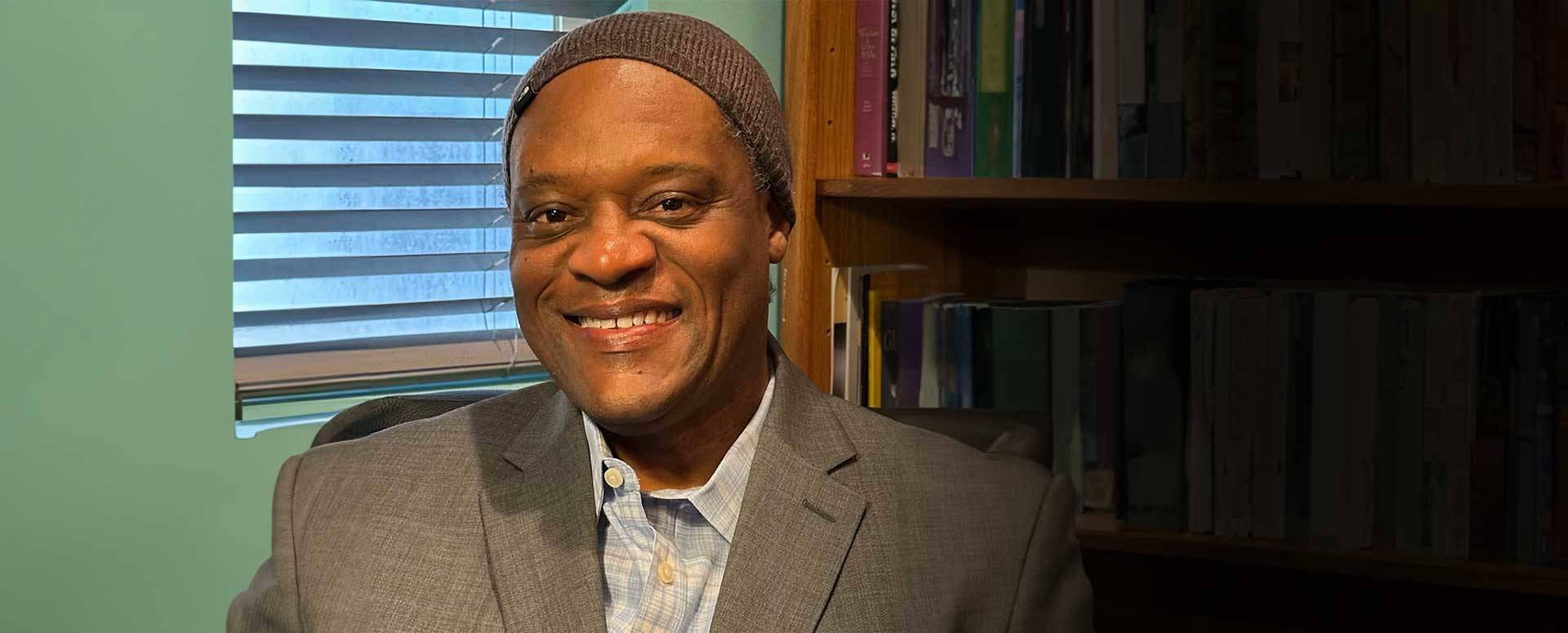
Sharroky Hollie
National Educator
Sharroky Hollie
National Educator
Biography
Dr. Sharroky Hollie is a national educator who provides professional development to thousands of educators in the area of cultural responsiveness. Since 2000, Dr. Hollie has trained over 150,000 educators and worked in nearly 2,000 classrooms. Going back 25 years, he has been a classroom teacher at the middle and high school levels, a central office professional development coordinator in Los Angeles Unified School District, a school founder and administrator, and university professor in teacher education at Cal State University. Sharroky has also been a visiting professor for Webster University in St. Louis and a guest lecturer at Stanford and UCLA.
In addition to his experience in education, he has authored several texts and journal articles. Most recently, he wrote Strategies for Culturally and Linguistically Responsive Teaching and Learning (2015) and contributed a chapter in the Oxford Handbook of African American Language (2015). Dr. Hollie's first book, Culturally and Linguistically Responsive Teaching and Learning: Classroom Practices for Student Success, was published in 2011, followed soon thereafter by The Skill to Lead, The Will to Teach, co-written with Dr. Anthony Muhammad. Also, Dr. Hollie has been a contributing author with Pearson publishing, in the Cornerstone and Keystone textbook series (2009), Prentice Hall Anthology (2012), and iLit e-series (2014). In 2003, he and two colleagues founded the Culture and Language Academy of Success, a laboratory school that demonstrated the principles of cultural responsiveness in an exemplary school-wide model, which operated until 2013.
Speech Topics
FOUNDATION DAY ONE: A FOCUS ON CULTURE AND THE INSTRUCTIONAL BENEFITS
• Defines, concretely, what is cultural responsiveness and why it is necessary in our schools today.
• Builds knowledge and creates the context for addressing the needs of underserved students in terms of their sociopolitical and sociolinguistic relativity in the American educational system.
• Promotes the focus on effective instructional strategies utilization in a way that validates and affirms underserved students across content areas and grade levels.
CULTURALLY RESPONSIVE CLASSROOM MANAGEMENT WORKSHOP
In order to have a positive classroom management system, teachers have to separate cultural behaviors from disruptive behaviors. In many cases, the two are confused due to biases, misperceptions, and miscommunications. This workshop works with participants through a process of reflecting upon their unconscious biases, learning about cultural behaviors according to research, and practicing management strategies for building on the cultural behaviors.
CULTURALLY RESPONSIVE ACADEMIC VOCABULARY WORKSHOP
This workshop shows classroom teachers how to build academic vocabulary, while validating and affirming the cultural vocabularies that the students bring to school. There is a focus on strategies in the areas of synonym development, context clues, and demonstrating the purpose and use of slang as it applies to youth culture. The workshop introduces the CLR academic tools: personal thesaurus and personal dictionary.
CULTURALLY RESPONSIVE ACADEMIC LITERACY WORKSHOP
This workshop delves into the use of culturally responsive text, by focusing and modeling effective literacy strategies for the purposes of teaching the Common Core Standards. Teachers will also build their knowledge in what is a culturally authentic text and what is not, will learn why use of effective strategies made culturally responsive can benefit students more so than traditional activities, and will learn applications for use with content area textbooks. Variations of this workshop include focus on reading comprehension for 4-12 grade students and developing oral literacy skills in the primary grades.
CULTURALLY RESPONSIVE ACADEMIC LANGUAGE WORKSHOP
The concept of situational appropriateness is validating and affirming because it gives credibility to home language and culture, while at the same time teaching the expectations of Standard English language and mainstream cultural behaviors. This workshop will provide specific strategies for teaching students situational appropriateness in language and behavior, with a particular focus on writing and academic language.
JUMPSTART WORKSHOP
You have attended the CLR foundational training and you are ready to VABB! You see the value of moving beyond traditional modes of teaching to be more culturally and linguistically responsive to your students. You want to jump in the CLR pool and perfect your strokes. Your mindset is there, but you are looking for additional support with your skillset. For many teachers, the link between the CLR strategies (skillset) and the purpose (mindset) is foggy at first. The Jumpstart Workshop is designed to help teachers with their use of the strategies. Through modeling and immersion. Teachers will learn how to use CLR strategies by doing them. The workshop also helps teachers begin to understand the WHY of the CLR strategies and how they can be used to validate and affirm cultural behaviors. Get ready to JUMPSTART your responsiveness!
Six Ways to Know If You are Culturally & Linguistically Responsive
The session will answer this question for you: Am I culturally and linguistically responsive? The phrase "culturally and linguistically responsive" has now become cliché, the death knell in education. Cultural responsiveness benefits all students, in particular those students who have been traditionally underserved in the United States’ schools. Given its importance to empowering and inspiring educators to be responsive and for students to be academically successful, how do you know if you are culturally and linguistically responsive in your mind-set and skill set? Find out through a motivating, inspiring, and thought-provoking keynote address. The session will answer this question for you: Am I culturally and linguistically responsive?
Learning objectives:
- Know what is meant by culture and language in the context of culturally responsive pedagogy—theoretically and pragmatically
- Focus on common strategies utilized responsively in the areas of classroom management, academic literacy, academic language, and academic vocabulary
- See connections between standard educational initiatives, such as Common Core State Standards, and the relevance of CLR
- Understand more poignantly how implicit bias thinking can impact good intentions negatively

)
)
)
)